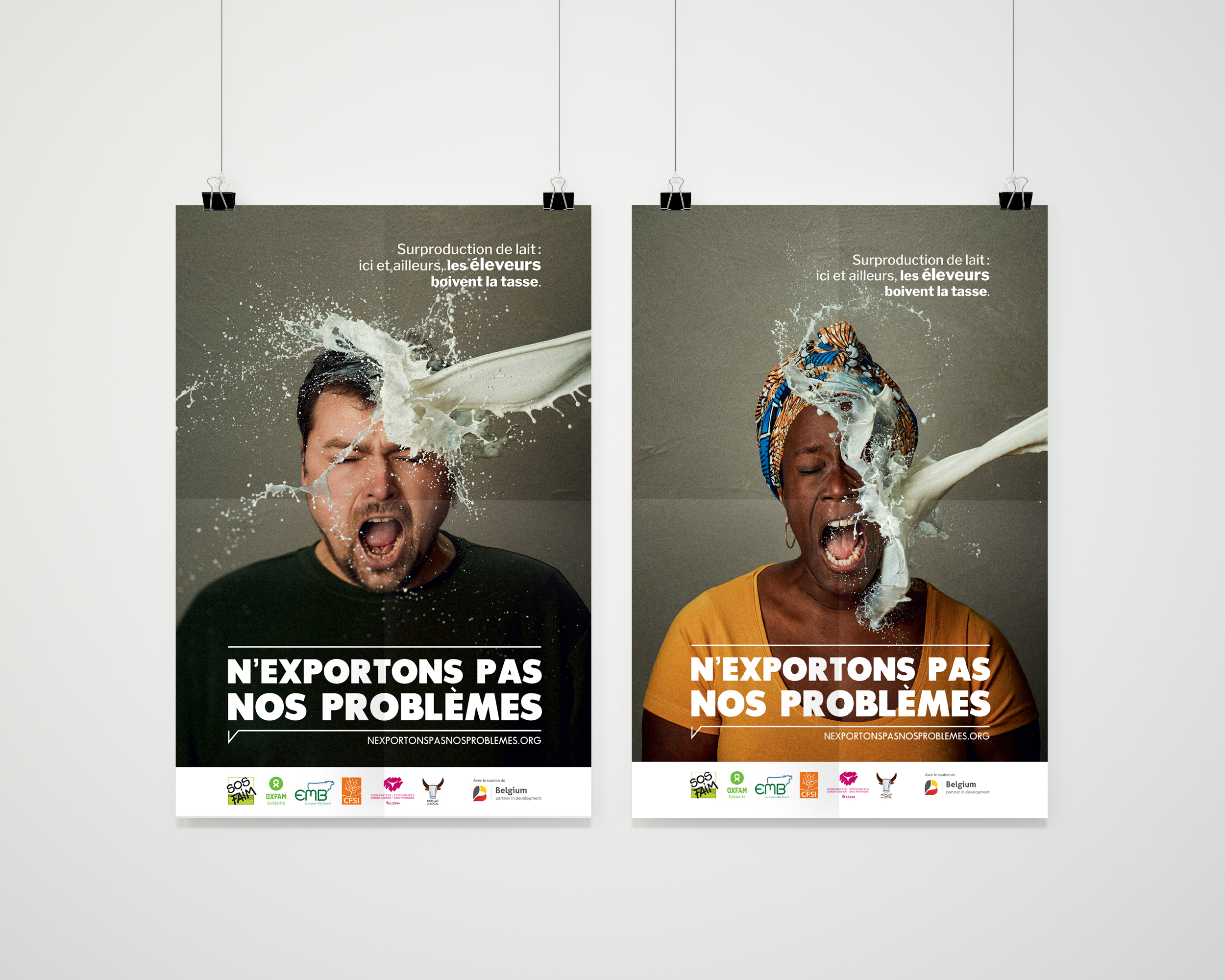
« SOS Faim », the NGO at the head of the campaign, asked Switch to help them with the campaign’s implementation. Switch then suggested a concept and a slogan that quickly translated into deliberately thought-provoking visuals. This spurt of milk splashing an African and a European farmer wants to make a powerful statement.

The visuals encourage the public to learn more about this issue by visiting the campaign’s website. This one-page website is quite simple. The issue is introduced early on, as well as the political recommendations that campaigners want to bring to the political level. If you’re looking to find out more, the site allows you to download a thematic folder and an animated video.
The animated video uses the “motion design” technique in order to make the issue more accessible visually speaking. Switch chose a tone in line with the campaign: straightforward and slightly cynical. The video was broadcast on social networks aiming for maximum engagement (likes and shares).
“It’s been a pleasure working with Switch. They are true professionals with excellent creation and implementation skills. The team understood our objectives and tone of voice straight away, which means they were ready to work quickly. They combined pleasure, effectiveness and success!”
– Anne-Laure Van der Wielen , Campaign officer, SOS Faim
views
shares
comments
Visit the website : reclaimhumanrights.net
In 2016, as Switch was taking up residence in the heart of Cureghem, in Anderlecht, the whole team wanted to start a project about this fascinating neighbourhood. Walking through its streets, we discovered an exceptionally multicultural neighborhood, the result of more than a century of migrations.
That’s when we decided to develop Curegame in collaboration with the Solidarity Service of the municipality of Anderlecht. Curegame is a transmedia device with a mobile app at its core. The app can be downloaded on smartphones and tablets. Users embark on an interactive journey through the streets of Cureghem to learn about its people and history.
Discover the project : curegame.be
We simultaneously produced a twenty-minute documentary to complement the first-hand experience. The documentary paints the portrait of five people who experienced migration at different times. With them, we address several universal issues such as leaving their own country, their relationship to their country of origin, integration and community life.
In order to allow teachers and animators to deepen the educational work with two tools at their disposal, we designed an educational guide that provides a theoretical basis and two animation sequences of 50 minutes each.
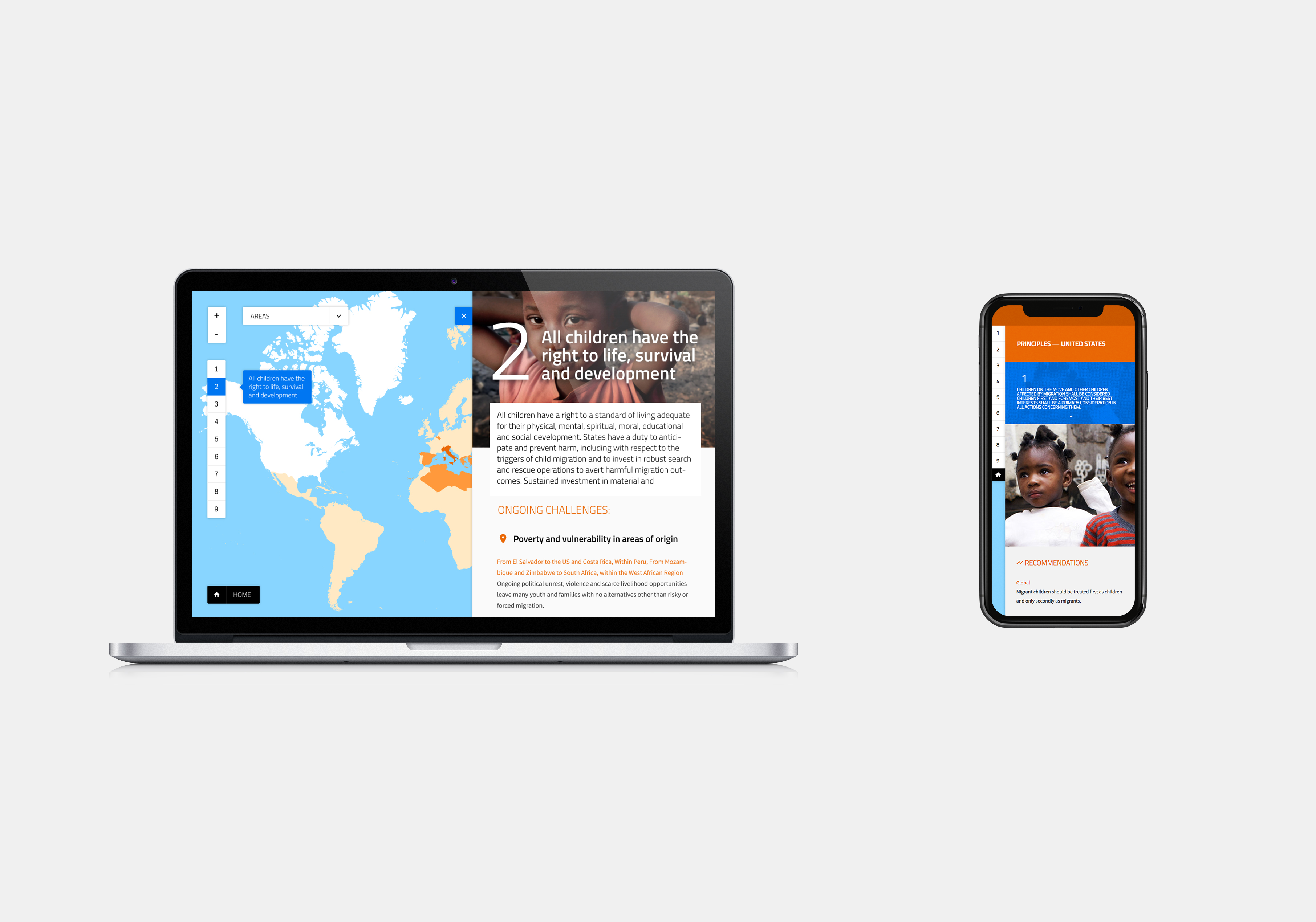
Visit the website.
We faced a huge challenge as soon as the project started: introducing a young audience to a complex theme – social protection – in a school context. We suggested developping a serious game in the form of a simple role-playing game that would get the user to step into the shoes of a head of state in an imaginary country.
Découvrir le serious game : bienvenueaprovidence.com
We needed to go beyond fiction by portraying concrete realities (policies and their impact on populations). Parallel to the game, we made a 26-minute documentary shot in 3 different contexts: Belgium, Bolivia and Senegal.
In order to help teachers during the facilitation process, we designed a guide that explains the stages of the game and provides additional content allowing the teacher to complete the information.
The device was distributed as part of CNCD-11.11.11’s educational package on Social Protection during the 2015-2016 school year. Many events were held by regional leaders as part of the campaign. Finally, the game was evaluated by the Review Committee of “Annoncer la Couleur”. Their feedback on the tool’s educational value was extremely positive.
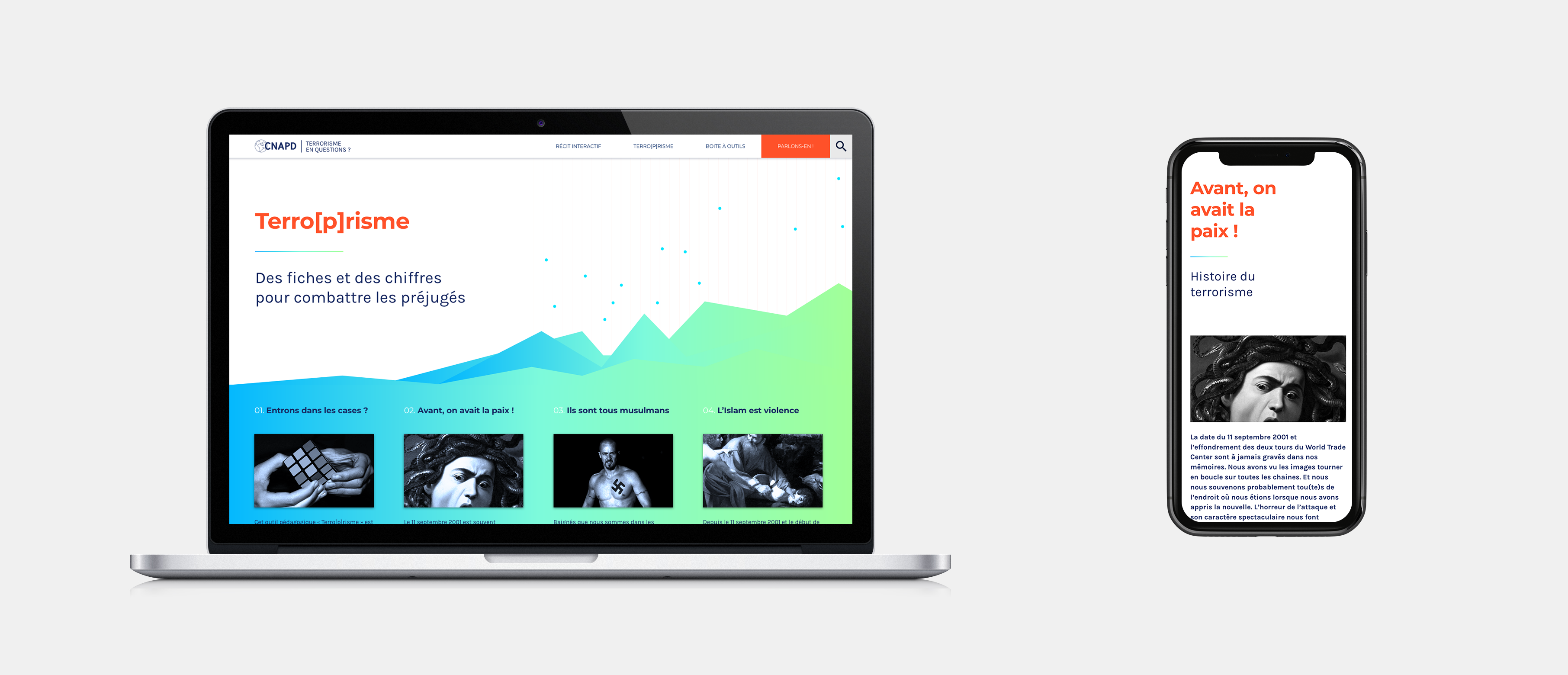
Check the website : questionsterrorisme.be
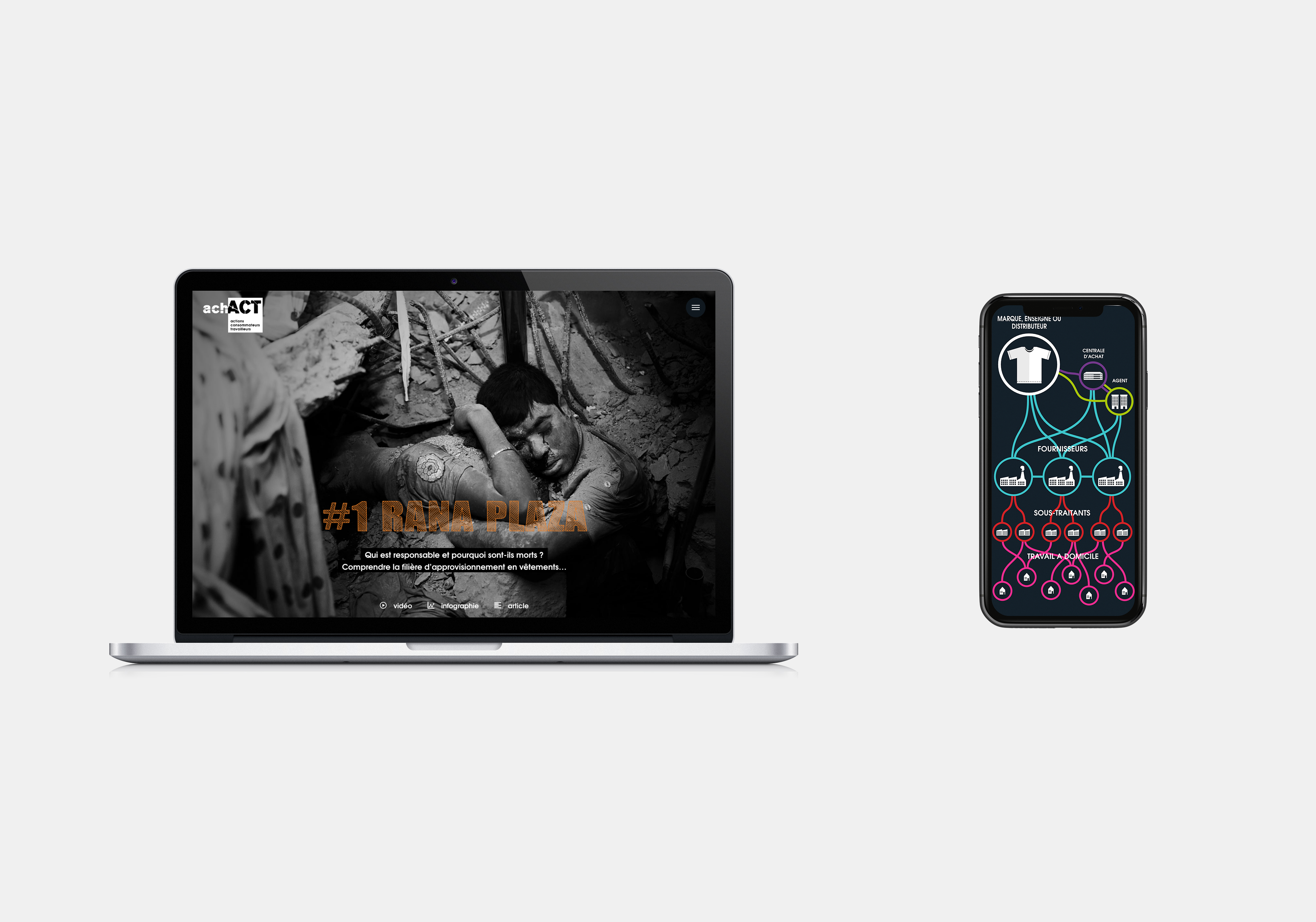
Visit the website ranaplaza.be
The idea behind Copa Para Quem was born in late 2013 when reporter Maryse Williquet went to Brazil. There, she discovered a country buzzing with excitement and getting ready to host a historic event. However, she soon learned about another reality – one that the host country was trying to hide. That’s when she decided to embark on this crazy project. Switch decided to follow her and help her turn it into a reality.
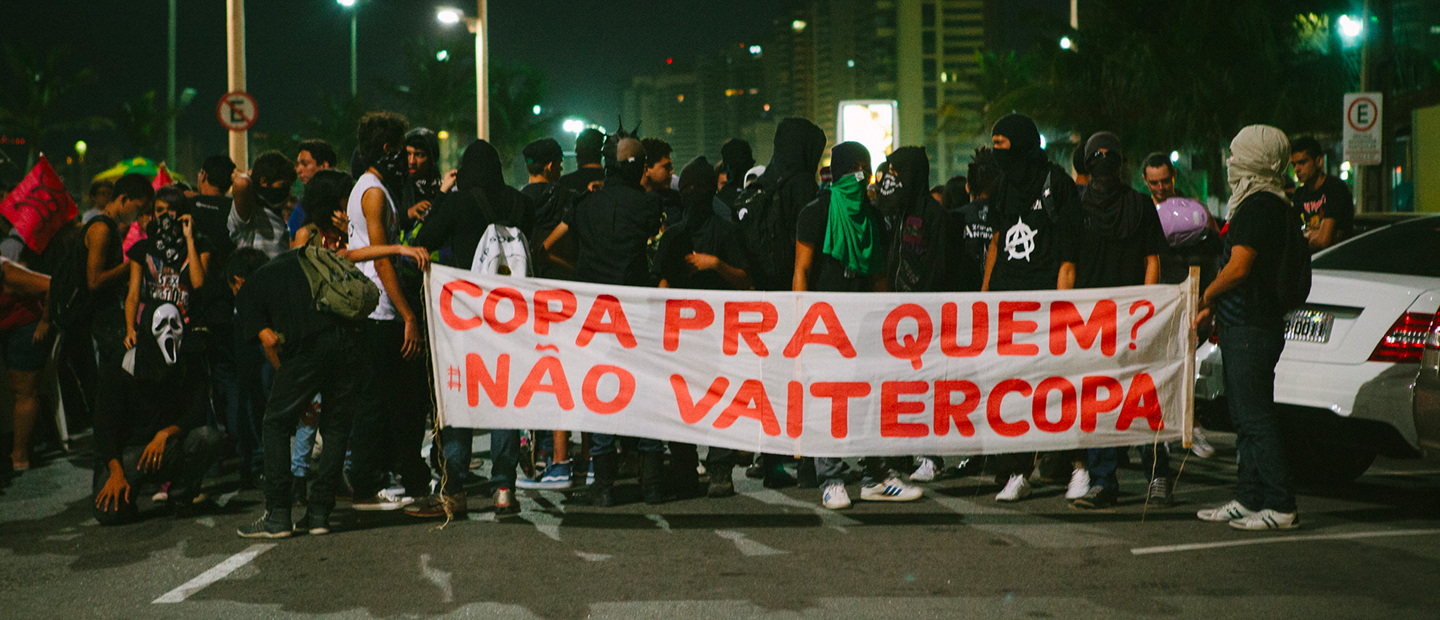
Maryse Williquet stayed for five months in the city of Fortaleza, the capital of one of the poorest states in Brazil. It gave her enough time to establish solid relationships with the “undesirable ones”, that the authorities seek to hide by kicking them out of the city, but also with those campaigning for the event to be managed differently. The Copa Para Quem movement was just being born and we were seeing it in real time.
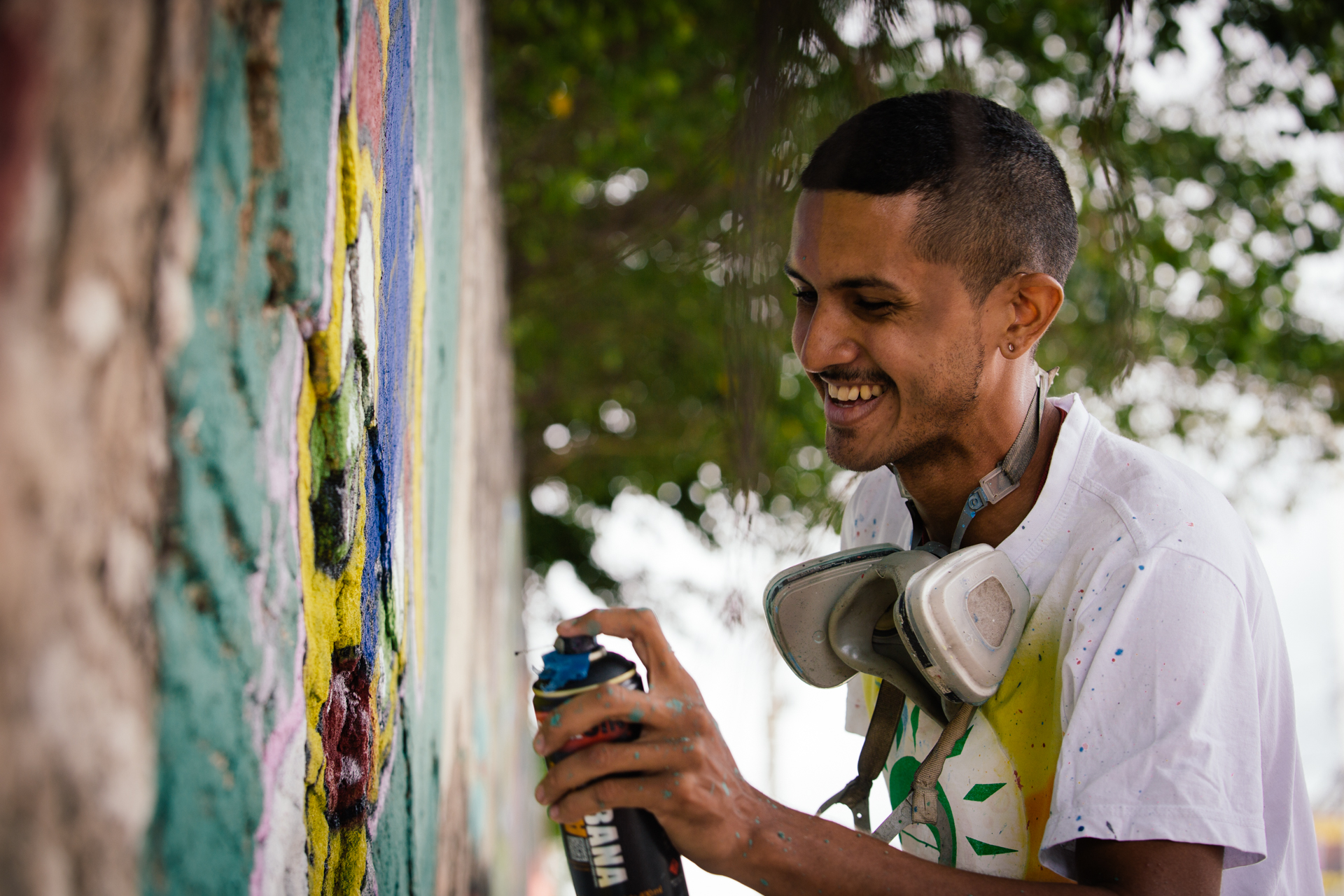
We chose to approach this issue through the web documentary format, allowing the audience to discover it at its own pace, one theme at a time, with the possibility of deepening the experience. We also produced a 26-minute linear format for theatrical and TV screenings.
Discover the full project : www.copaparaquem.com
The project was quickly awarded a grant from the Fund for Journalism. To support this grant, we created a crowdfunding campaign on KissKissBankBank. That’s when we realised how much the audience was interested in this topic. Our campaign soon reached its goal; a genuine community was created around the project.
Copa Para Quem has been a real public success thanks to our community and relentless promotional work. The web documentary has been viewed more than 100,000 times, with an average session duration particularly long for this type of format. The linear documentary has also been screened several times, with or without debates. Finally, thanks to its media coverage, Copa Para Quem helped to provide an alternative look at this hugely popular event.
With the participation of the Fund for Journalism, the Belgo-Brazilian Committee, Pianofabriek, CNCD-11.11.11 and the newspaper Le Soir.